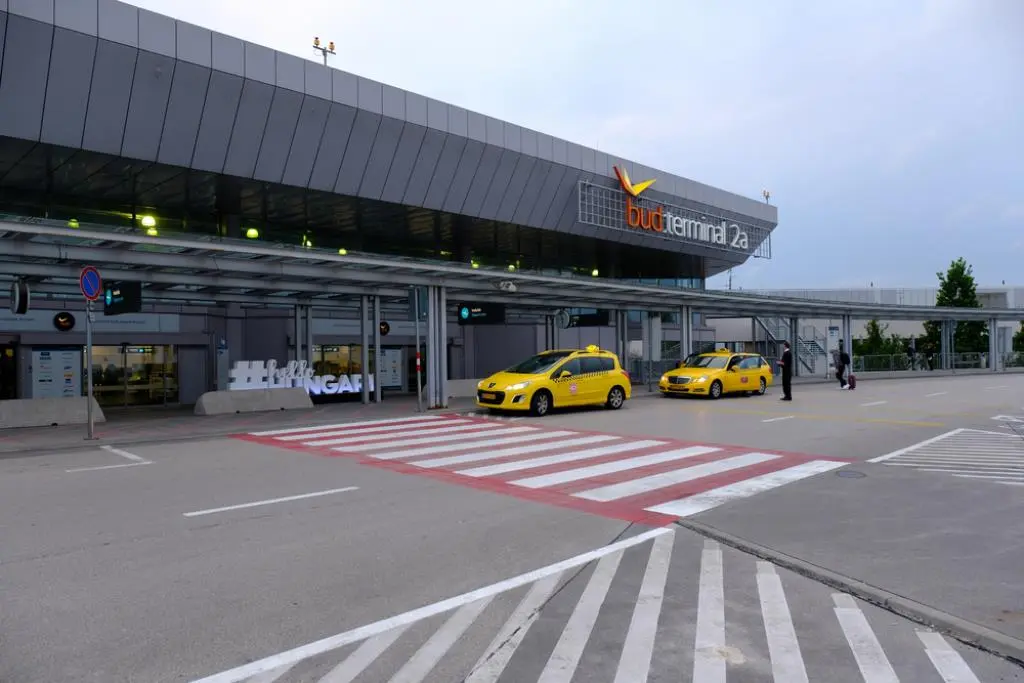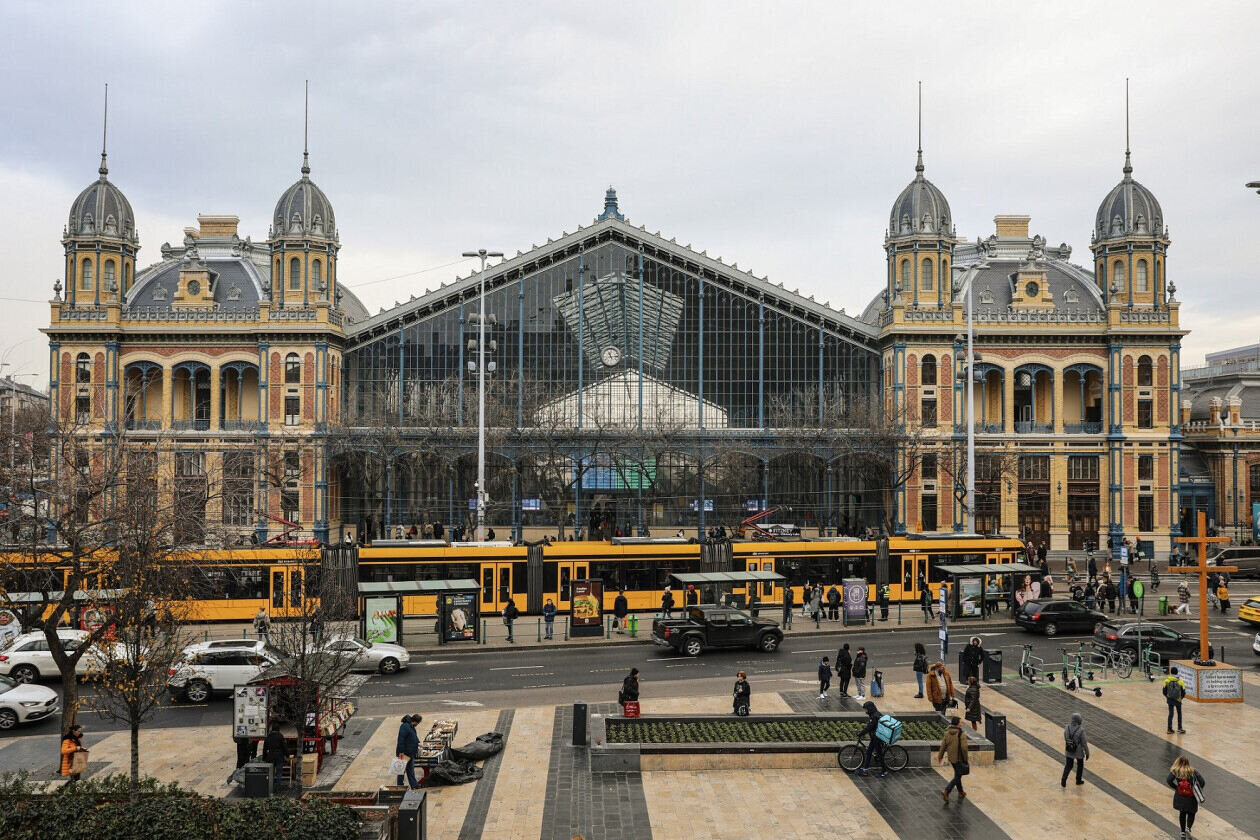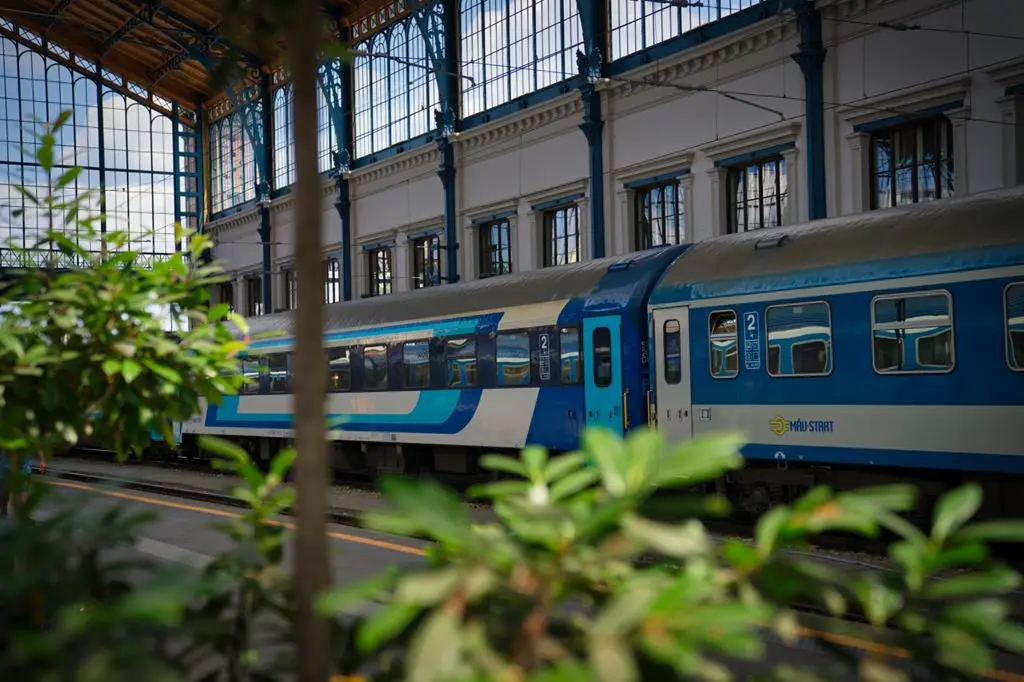Change language:
Surprising: Private super railway may connect Budapest Airport with city centre – UPDATED

Even the Hungarian government acknowledges that the railway and public road connection between the Budapest Airport and the city centre must be expanded. However, probably only a few expected the idea of a private super railway line connecting the city with the airport to come.
No direct railway connection with Budapest Airport
Those who already visited Budapest by plane know you can travel to the city centre from the international airport (Ferenc Liszt International Airport) by car (taxi), the airport shuttle bus or train. However, the train connection is not direct.
Provided you would like to continue your journey by train, you need to get off the bus at Ferihegy train station. That station is near Budapest Airport Terminal 1, used nowadays only by cargo planes and private jets. HERE is our article about it.
A direct railway connection between the city centre and the airport was planned, but nothing happened. The Hungarian government is to buy back Budapest Airport from its foreign owners and plans to expand it near Terminal 2 with a new terminal.

Budapest Airport as an underground railway station?
The National Infrastructure Development Company (NIF) planned a high-speed railway line between Kőbánya-Kispest (Budapest’s 10th district, but not the city centre) and the airport. According to those plans, that line would have become part of the future high-speed network’s Eastern branch.
Based on the NIF’s idea, Intercity and fast trains would have commuted on the new line and stopped only at Budapest Airport at an underground station. Meanwhile, suburban passenger and cargo trains would have used the old line. As a result, traffic could have become easier and swifter between the airport and Budapest. However, nothing happened.

New plan: the Chinese would build a private super railway line
According to iho.hu, the Chinese would like to build a railway connection between Terminal 2 (and Terminal 3) and Budapest’s city centre. However, they would build a private super railway line, which would not be part of the Hungarian railway network system.
Based on the sources of the Hungarian media outlet, the reason is that they had a bad experience with the operation and state of the state-owned Hungarian railway system during the Belgrade-Budapest railway line renovation.
Therefore, they would not like to integrate the new private super railway line into the already existing system. Instead, they would build an overhead railway operated with separate tariffs.

Here is the government’s opinion
Gergely Gulyás, the Minister of the Prime Minister’s Office, admitted during the latest Cabinet Briefing this Thursday that both the revamp of the airport expressway and the expansion of the railway link are necessary. He added that both projects could have been realised with private financial sources.
He cleared that such investments would cost hundreds of millions of euros. “There are [projects] that can be carried out market-based. That is especially true on the railway“, he concluded.

Of course, he did not mention China or the Chinese, or a private super railway, but iho.hu’s unnamed sources still claim that the Chinese may enter the project and build the long-desired railway link to the airport.
UPDATE: Opposition LMP says China-backed airport rail project would be ‘unforgivable mistake’
The opposition LMP party has called the planned Chinese-backed rail link between the international airport and central Budapest an “unforgivable mistake”.
The original plan was to connect the airport and the city centre in a way that ensured access from other cities and the Budapest agglomeration, thereby maximising flexibility, Peter Ungar, the green party’s co-leader, told a press conference on Monday, vowing to bring the matter before MPs with a view to implementing the project according to the original plans.
He said other investments in Europe involving Chinese lending had ended badly, and he called for the details of the financing package to be made public. LMP will also submit a data request in the public interest to reveal “exactly what kind of deal is being planned with the Chinese” and how much it would cost taxpayers, he added.
Read also:
- Another Chinese city to be directly accessible from Budapest this summer!
- Chinese investments worth EUR 15 billion underway in Hungary – Details in THIS article
Featured image: depositphotos.com








A railway link between a city’s airport and the downtown is welcome in every major city and of course Budapest would like to have it. To build one that is not using existing tracks and claim in any way that it will be “market based” is completely delusional. Someone is going to end up subsidizing it. There is no possible way that the revenues from passengers will come remotely close to covering the costs of construction over any length of time.
These Fidesz scammers are putting Hungarians more and more under communist Chinese control. In Africa.they know what communist Chinese “help” really means!
Failure to proceed with the line diversion and underground station for existing fast trains would be a historic mistake as the solution offers connectivity not only for Budapest but also the regions. A dedicated train that serves only Budapest and isn’t integrated into MAV is of limited passenger appeal, while also serving to erode the future business case for the construction of a spur line and MAV through station at the airport.
Upgrading the road is of much greater urgency in my opinion, not only because of strong passenger growth at Budapest airport, but also because the M4 motorway will shortly begin carrying far more traffic due to motorway improvements in Romania and Hungary. At present all that extra traffic will do battle with airport passengers on the single ‘gyorsforgalmi’ road, a relic of the 1940s, there’s no other route available without undertaking a lengthy detour.